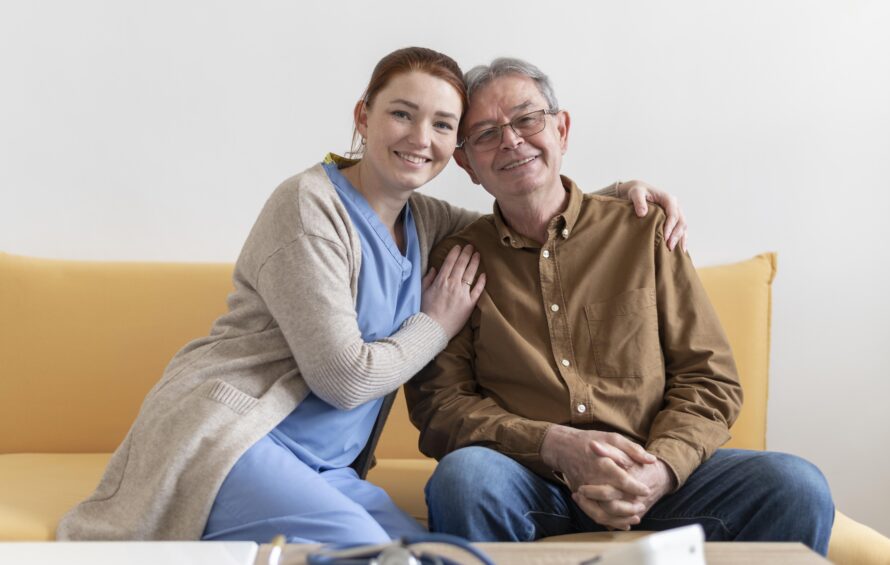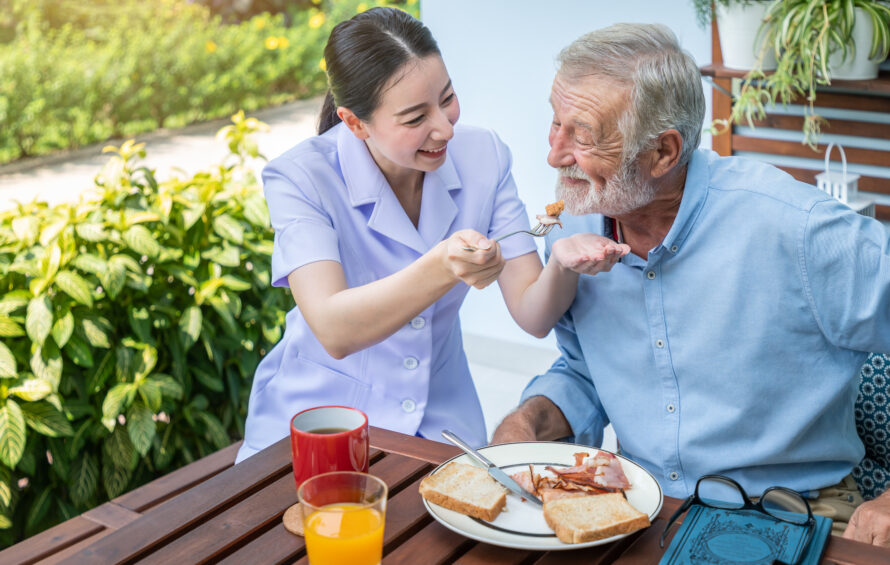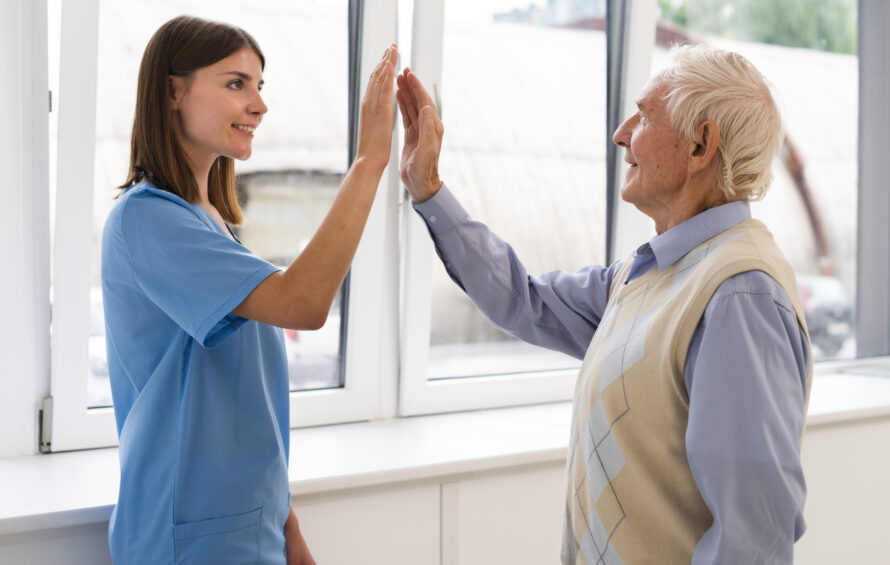Tony’s story
“Act FAST…”, that’s what they tell you on the adverts. Face, Arms, Speech, Time.
That’s all well and good when you’re with people who might notice these things, but what happens when you’re alone? How do you identify the signs of a stroke when it’s happening to you? With my first-hand experience, I can tell you.
LIGHTNING! A bolt of pain that goes through you like lightning, a jolt that hurts so bad that you lose all function. Your eyes blur as you experience a pain so intense that you just want to do anything to make it stop. The sudden realisation that you don’t know who or where you are.
Blackness rushes in as the fear and panic take over. Then a feeling in your face that is so strange it feels like an alien creature has invaded as your muscles twitch and pulse like something crawling. You know something isn’t right. You know you need to call 999 but your entire body is crying out “STOP!”
You can feel yourself trapped inside a body that isn’t under your control. A body that’s doing its best to shut down nonessential functions to maintain the brain; taking oxygen and energy directly from your extremities.
A numbness invades one side of your body, for me it was my left-hand side. I focused on my fingers, trying to use some kind of telekinesis to make them move. They twitch as I tell myself you’ve got this. I have no idea what THIS is but I know I’ve got it, now what?
Think… I scream at myself, and realise I made a noise. I need to keep making noise. I force myself to say anything, eventually focusing on a song. I don’t know the words and I don’t care, I need to keep my voice. I need to get help! I grab my mobile and force those alien digits to press the numbers.
Calling for help
“Emergency services, which service do you require?” comes the voice.
“Amulan,” I say, as I force the sound out of my mouth.
“Okay,” comes the reply. “Where are you?”
I burst into tears as I struggle to say where I am but all that comes out is “Muphem muble jub.” Now what? How am I going to get help.
“Are you alone?” the voice says.
“Yesh! Imalon.” My energy is fading as this is taking its toll on me.
My saving grace
Then a miracle “Hey Tony, it’s me!” comes a voice from the front door.
It’s my support worker. I cry out as she comes through, by this time I’m on the floor and crying. She threw her things on the sofa and was next to me on the floor in an instant. I show her my phone as I sit there in a mess.
That young woman did her parents and me proud that day. Without hesitation she took the phone and explained who she was and that she thought I was having a stroke. She took control, like she does this all the time. So calm.
She then put her arm around me and hugged me close, saying “Come on Tony, focus on me. We’ve got this, hold my hand and squeeze as hard as you can so I know you’re with me.”
At that moment, she did the strangest thing. She started having a conversation as though everything was normal, I would try and answer but no matter what came out, she just went with the flow and kept me talking and squeezing her hand.
In no time the paramedics arrived and bundled me up to take me to the hospital. You know, that woman didn’t even react to the drama around her. She just said to me, “I’ll pack you a bag, which PJs do you want?”
At that moment I wanted to adopt her, I’ve never had children and if I’m honest I never wanted any until that moment when I realised if she was my daughter, I would be so proud of her. She simply gave the bag to the paramedics and asked which hospital I would be going to and then I was gone, off in the ambulance.
Coming home from hospital
About a month later I was allowed to go home from the hospital, my speech was almost normal apart from the occasional wrong word, which I’m told will banana – sorry that’s my little joke – get better eventually.
The first person to come and see me was my support worker. She checked on me throughout my stay in hospital, regularly calling to see how I was, and now she was here with me at home. I owe that lovely woman my life, and she just says it’s part of the job; it’s what she’s there for.
People ask me how home care differs now compared to before the stroke. Honestly, I don’t feel like I have support workers anymore. I have a little family of people who I know have got my back no matter what life throws at me. I know they’re not my real family but I’d be lost without them.
Since my stroke I don’t go out as much as I used to and sometimes those support workers are the only people I see from one day to the next.
If I’m having a bad day then they’re there to listen and they do their best to cheer me up. I genuinely look forward to them coming and hearing about their lives and what’s happening with them.
I know that sometimes things aren’t always great for them, but they never show it. There’s always a feeling of positivity from them and I love them all so much.

What is home care?
As you can probably tell from Tony’s account, home care isn’t a job where someone just pops in and does a few household tasks. It’s so much more than that.
The support that you receive from our team is second to none, simply because of the way the support staff are trained and their passion to make a difference to someone.
Yes, they can assist with everyday tasks, but the connection that’s built between client and support worker is a very special bond; extremely intimate and beneficial to the client’s physical and mental wellbeing.
Each and every member of the team wants what is best for the client, and sometimes that can just be an ear to listen to them; whatever the need the support staff are there to fill it.
How can home care help?
All too often we see family members struggling to provide the additional care that their loved one needs, while juggling their everyday lives. This can lead to stress, anger and resentment, when the reality of the situation is they just want their loved ones to be happy and remain at home.
Home care can be the answer. Specially trained support staff are there to take away the stress and let you just spend quality time with your loved one without the pressure of having to give them additional support.
Let’s be honest, nobody wants to be assisted to shower by anyone else. The embarrassment and feelings of inadequacy are multiplied when it’s a loved one having to assist, and over time, that relationship can erode until both parties are at breaking point.
Home care takes on those tasks in the least intrusive way possible, to enable families to be just that – a family – and not fall into the role of caregiver.
All our staff are trained in all aspects of support from personal care and medication administration to companionship and having a friendly face to have a cuppa with.


The benefits of home care
Home care can be the perfect solution to worries around medication, appointments and domestic tasks etc, with the added bonus of you or your loved one remaining in their own personal environment – the home that has been so lovingly created.
The team at Care Advantage are so confident that you will see the benefits of home care for yourself that we offer a 28-day cooling off period.
If you don’t see the benefits within 28-days you can cancel your contract with us at no additional cost and with immediate effect, and you will only be charged for the support you’ve received so far.
Get in touch
If you or your loved one are interested in home care across Suffolk, Essex and Greater London, or want to learn more about how home care can help someone after a stroke, please don’t hesitate to get in touch.
Our professional staff will be happy to answer any of your questions or provide more information on how we can support your family.
